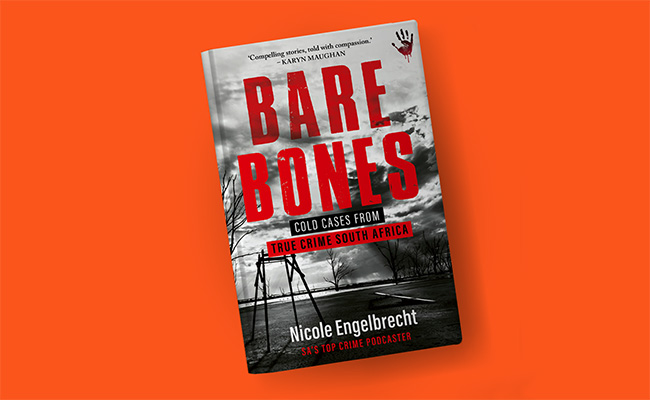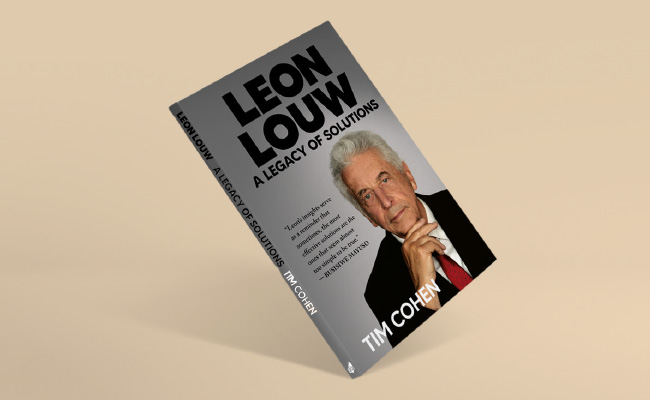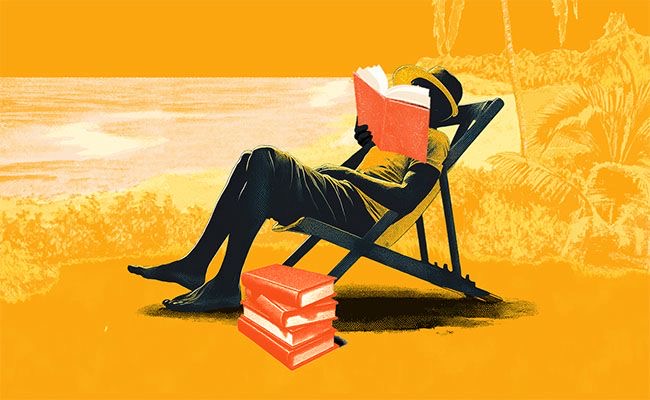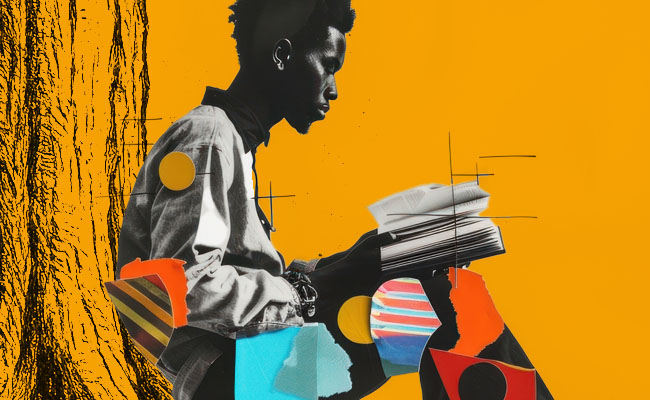If you’re a true-crime fundi who devours international hits like Serial and The Golden State Killer, but you haven’t discovered South Africa’s own queen of the genre, Nicole Engelbrecht, this is your wake-up call. It’s an especially timeous alert given that she’s just released her latest book, Bare Bones: Cold Cases from True Crime South Africa (Jonathan Ball), which we can’t recommend highly enough.
Engelbrecht launched her podcast, True Crime South Africa, in 2019. Since then it’s become one of the country’s most listened-to shows, praised for its meticulous research and compassionate, ethical approach. What makes her work stand out is the deep respect she shows the people at the heart of each case – a sharp contrast to the sensationalised, neatly tied-up narratives that often dominate the genre.
This has also been a hallmark across her previous books, which include the acclaimed Samurai Sword Murder: The Morné Harmse Story (Melinda Ferguson Books). Her fourth book, Bare Bones revisits ten haunting unsolved cases, from a Jane Doe found buried beneath a swimming pool to a young man lost in the prison system and a child abducted outside her home.
“Bare Bones is essentially a culmination of six years of work and focuses on ten of the unsolved cases that I’ve covered on the podcast,” she says. Through these stories, Engelbrecht highlights everything from systemic flaws in DNA analysis to a man who still grips the national imagination decades after he committed his crimes – paedophile and kidnapper Gert van Rooyen.
As a true-crime fan myself, I’ll admit I used to skim past cold cases. They felt frustratingly unfinished – but Bare Bones changed that. Engelbrecht shows why these stories matter. “After I’d switch off the mic and publish an episode, something interesting would happen,” she says. “Months, even years later, people who knew something about the case would find it. Some offered small leads; others shared information big enough to reopen cases.”
It’s a phenomenon seen worldwide, where podcasts have helped crack decades-old murders. That said, Engelbrecht stresses that the South African context makes the need even more urgent: “In 2022, only 14% of murder dockets were closed. For every ten murders I cover on the podcast, only one is solved.”
Homegrown complications

Engelbrecht’s book shows how South Africa’s crime landscape is shaped by a complex and tragic mix of socio-political history and economic disparity. She says, “Watch enough American true crime, and you’d think the US modus operandi applies everywhere. There, sex workers are often targeted because they’re seen as vulnerable. In South Africa, few killers focus on them. Vulnerability is widespread and impacted by poverty, unemployment, lack of education and rural isolation, so killers lure victims with promises of work. Victims may even travel on public transport with them or walk for kilometres to meet them.”
Bare Bones also makes clear that not every victim’s case is treated equally. The public, media, and authorities often give extra attention to victims with a certain profile. Think of the wall-to-wall coverage of Reeva Steenkamp’s murder by Oscar Pistorius or the Van Breda family killings in Stellenbosch, compared to the relative silence around cases in poorer communities. It’s a pattern that echoes abroad too.
In 1970s England the Yorkshire Ripper, Peter Sutcliffe, went uncaught for years because police and media divided victims into “good” and “bad” categories – sex workers were blamed, dehumanised and deprioritised. “Consciously or unconsciously, there is a belief that certain people are just more high risk,” Engelbrecht notes. “And when something happens to them, yes, it’s sad, but it’s not as sad as if it’s someone who lives a low-risk lifestyle.”
Chapter after chapter of Bare Bones delivers revelations that shock and unsettle. The disappearance of Keegan du Plooy from police custody in 2020 is especially haunting. Engelbrecht considers several theories, including whether it was even Du Plooy who appeared in court, and if he may still be in the prison system under another inmate’s identity. The case underscores failures within correctional services – also exposed by the Thabo Bester scandal, the Netflix documentary about it, The Beauty and the Bester, and Justice Edwin Cameron’s book Behind Prison Walls: Unlocking a Safer South Africa (Jonathan Ball).
Beyond its chilling details, Bare Bones also lays bare the fragile state of DNA analysis in South Africa, revealing a system stretched thin and often failing those who need it most. Engelbrecht examines how apartheid’s legacy and migrant labour patterns still complicate victim identification. At its heart, the book is a tribute to the families still searching, and to countless South Africans living with unanswered questions.
Asked what she hopes readers take away, Engelbrecht’s answer is simple: “Education.” That means thinking critically about the stories we share, and even how we engage with missing-person posts online. They can be powerful tools, she says, but only if they include official case numbers and come from credible sources like the Pink Ladies or Missing Children South Africa.
Nicole Engelbrecht isn’t slowing down. She’s currently researching new podcast episodes and hints that another book – or even a themed series – could be on the horizon. For her, the work never really ends. As long as there are unanswered questions, there are stories waiting to be told.
Bare Bones: Cold Cases from True Crime South Africa (Jonathan Ball) is available at major book retailers, and Engelbrecht’s True Crime South Africa podcast can be found on most platforms.
Read more of Jo Buitendach’s cultural reviews here
Top image: supplied
Sign up to Currency’s weekly newsletters to receive your own bulletin of weekday news and weekend treats. Register here.














